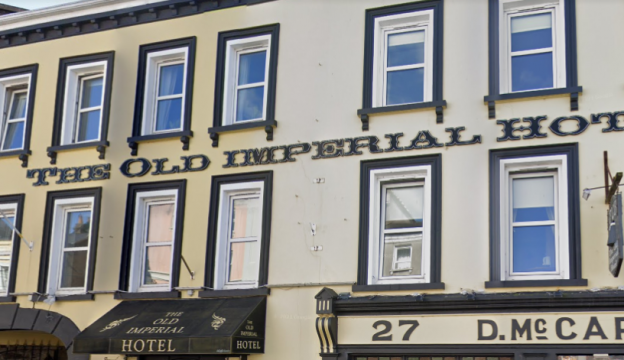A Cork hotel operator's claim that its insurance policy covered it for business interruption caused by the Covid-19 lockdowns has been rejected by the High Court.
The decision by Mr Justice Denis McDonald is regarded as a test case for similar insurance policy claims.
The case was taken by Coachhouse Catering Ltd, which runs the Old Imperial Hotel in Youghal, Co Cork, over the refusal of the Slovenia-based Zavarovalnica Sava insurance company to provide an indemnity for losses which it said were provided for in the insurance policy.
Coachhouse also sued the Irish broker Frost Insurance, trading as Frost Underwriting UQuote, which did not participate in the module of the case dealing with the interpretation of the policy and which Mr Justice McDonald gave his decision on Tuesday. Other issues in the case have been left for another module.
Coachhouse paid €7,369 together with €1,122 underwriting and tax costs, for the policy. It provided cover for business interruption up to a limit of €915,000 in a 12-month period.
Coachhouse made a claim was under the "Business Interruption and Loss of Licence" sections of the policy following the temporary closure of the hotel in March 2020 following Government measures in response to the pandemic. It claimed the policy was "riddled with ambiguity".
The insurer denied the claims.
Mr Justice McDonald, in rejecting the hotel's claims, said the court was required to consider the contract as a whole.
Evidence as to the subjective intention of the parties (when the policy was taken out was inadmissible, he said.
Instead, the court approached the process of interpretation of the contract by placing itself in the shoes of a reasonable person in the position of the parties at the time the contract was made and where that person is deemed to be aware of the relevant factual and legal background.

Coachhouse argued that the use of the word "damage" in the policy was not confined to loss or destruction of property used at its premises or damage to such property and this would extend to the loss of use of property, the judge said.
The judge said this argument must be rejected.
He also concluded that there must be physical damage to property in order to trigger cover under the relevant section of the policy. It followed that the public health measures introduced in response to the pandemic did not constitute “damage” within the meaning of that section, he said.
There was no cover for losses arising from Covid-19, he said







